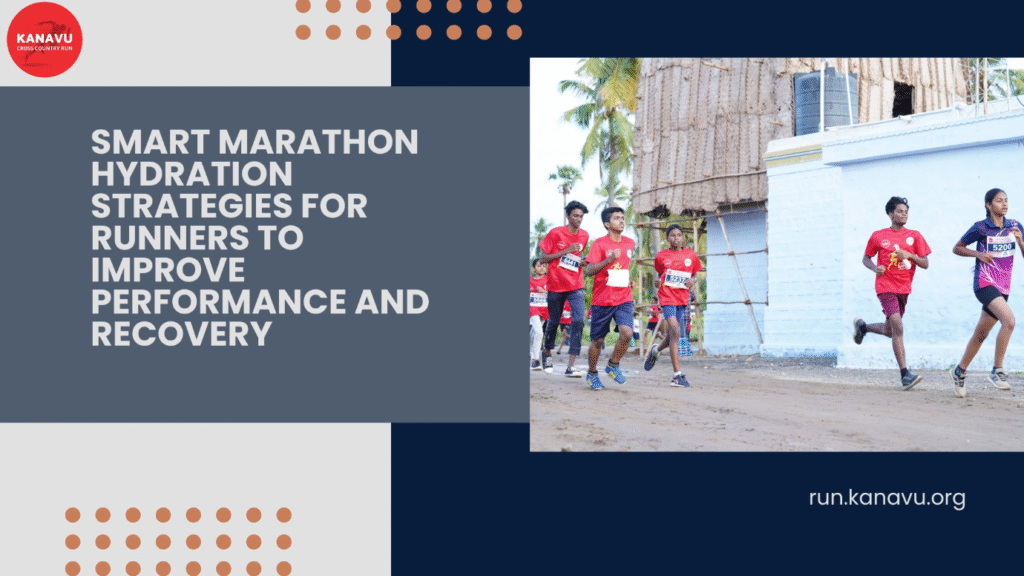Running a marathon is one of the most demanding endurance sports, and hydration plays a critical role in both performance and recovery. Even the best training efforts can fall short if the body is not properly fuelled with fluids and electrolytes. With the right marathon hydration strategies, athletes can maintain energy, prevent fatigue, and recover faster after long runs.
Why Hydration Matters in Endurance Running
When running long distances, the body loses large amounts of fluids through sweat. This loss impacts not only energy levels but also muscle function and mental clarity. Dehydration can lead to cramps, slower pace, dizziness, or even heat-related illnesses. Proper marathon hydration strategies ensure that the body stays balanced, allowing athletes to perform at their peak from start to finish.
Pre-Race Hydration: Building the Foundation
Hydration should start well before race day. Drinking plenty of water in the days leading up to the event helps runners begin the marathon with adequate fluid levels. Including electrolytes such as sodium and potassium is equally important, as they support nerve function and muscle contraction.
- Drink small amounts consistently throughout the day instead of large quantities at once.
- Limit excess caffeine and alcohol, as they can increase fluid loss.
- Eat water-rich foods like fruits and vegetables to support hydration naturally.

During the Race: Balancing Fluids and Energy
The key to successful hydration during a marathon is balance drinking too little causes dehydration, while too much water without electrolytes may result in hyponatremia (low sodium levels). Smart marathon hydration strategies include:
- Drinking 150–250 ml of fluids every 20 minutes, depending on sweat rate.
- Alternating between water and sports drinks to replace electrolytes.
- Practicing hydration during training runs to understand individual needs.
Some runners also carry hydration belts or use race aid stations strategically to avoid both overhydration and dehydration.
Post-Race Recovery Hydration
Finishing the race doesn’t mean hydration stops. The body continues to lose fluids after long runs, and replenishing them quickly is essential for recovery. Post-race strategies include:
- Drinking fluids with electrolytes within the first 30 minutes after finishing.
- Replacing each kilogram of body weight lost with 1.5 liters of fluids.
- Combining hydration with protein and carbohydrates for faster muscle recovery.

Tips to Personalize Hydration Plans
Every runner has a different sweat rate, metabolism, and tolerance. To make hydration more effective:
- Weigh yourself before and after training runs to estimate fluid loss.
- Note weather conditions hotter climates increase sweat and require more fluids.
- Test different drinks during training to avoid stomach discomfort on race day.
Hydration as a Performance Advantage
Runners who pay attention to hydration notice improvements in stamina, pace consistency, and post-race energy levels. Staying hydrated is not only about preventing problems it’s about gaining a performance edge. Well-structured marathon hydration strategies help athletes conserve energy, delay fatigue, and recover quicker, ensuring they’re ready for future races.
Final Thoughts
Hydration is more than just drinking water it’s a science that balances fluids, electrolytes, and energy needs. With smart marathon hydration strategies, runners can unlock their full potential and enjoy a healthier, more successful marathon experience.
At Kanavu Run, we encourage every runner to take hydration seriously as part of their training and race-day routine. With the right approach, every mile becomes smoother, stronger, and more rewarding.

